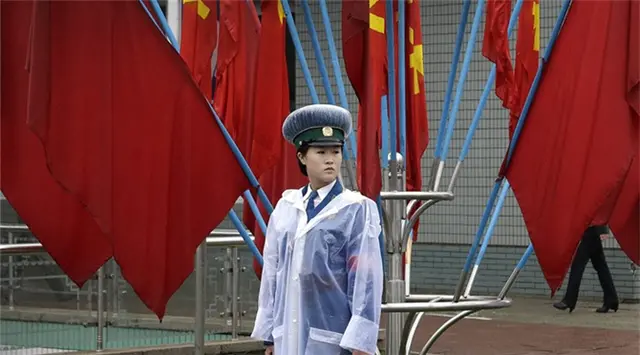Responses from several corners to Pyongyang's nuclear forecast at the onset of 2017 may be an early sign of tensions to come on the Korean Peninsula.
Senior officials from the United States, Japan and South Korea will meet Thursday in Washington to discuss a trilateral approach to the Korean Peninsula's nuclear issue, the U.S. State Department said Tuesday.
The meeting is scheduled several days after Kim Jong Un, top leader of the Democratic People's Republic of Korea (DPRK), said Sunday during his New Year's address that his country's preparations for launching an intercontinental ballistic missile (ICBM) have "reached the final stage."
The State Department said the meeting with two of its top allies in the region will focus on "shared regional and global priorities, including our efforts to promote peace and stability."
The response reaffirms a desire for the denuclearization of the Korean Peninsula as a top priority on the regional and global agenda. However, previous rounds of cooperation between those three have resulted in joint military exercises which have only incited Pyongyang. The time has come for a new approach.
The U.S., Japan and South Korea have failed to grasp the underlying causes that swiftly put an end to the six-party denuclearization talks years ago.
It should be remembered that in April 2009, due in part to the U.S.-South Korea joint military exercise, Pyongyang tossed aside its promises for denuclearization in talks with Washington, Beijing, Moscow, Seoul and Tokyo.
Pyongyang also blamed U.S. hostility for its withdrawal at the time.
It blasted Washington for pushing for toughened United Nations sanctions in response to Pyongyang's nuclear tests. The DPRK says those tests are necessary to ensure its national security.
Without moves to address Pyongyang's security concerns, denuclearization is merely an elusive dream. How can the DPRK move forward when it has to constantly watch its back?
By now it should be clear: mounting pressure and punitive measures will not force Pyongyang back to the six-party talks.
The six-party talks have proven so far to be the only solution to the peninsula's nuclear issue. The talk's approach of balancing the concerns of all parties through dialogue is the only workable way to resolve this longstanding issue.
In his Monday response to Pyongyang via Twitter, incoming U.S. President Donald Trump added China to the fray by criticizing the country for being unhelpful in resolving the issue. But the president-elect ignores one crucial fact: Beijing proposed the six-party talks and advocates their resumption.
Moreover, Trump's aggressive remark towards Pyongyang indicates a zero-sum mentality that may kill any chance to restore talks.
Pyongyang "stated that it is in the final stages of developing a nuclear weapon capable of reaching parts of the U.S. It won't happen!" Trump tweeted.
On Trump's remarks, White House said Tuesday it will "let his team explain exactly what he means."
Trump's unpredictability and differences with the outgoing President Barack Obama on several issues are sure to add variables of uncertainty to a volatile nuclear issue on the Korean Peninsula.
 简体中文
简体中文

